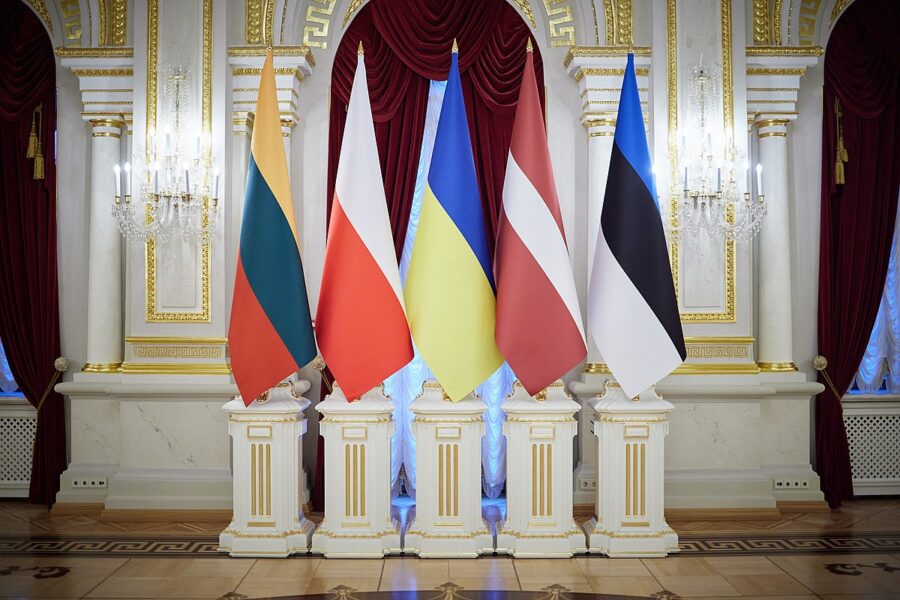
Putin’s predicted next political moves are currently under high levels of debate and scrutiny. His recent interview with US political commentator, Tucker Carlson, and the death of his chief political opponent, Alexei Navalny, shortly before the upcoming Russian presidential election have raised eyebrows. These factors, alongside the ongoing Russia-Ukraine war have caused particular concern amongst Ukraine’s neighbouring countries, with fears that they may soon be faced with Russian invasion.
In his interview with Carlson, Putin claimed that he had no interest in invading “Poland, Latvia, or anywhere else”, a phrase reminiscent of his January 2022 claim that he would not start a war in Ukraine. In December 2023 Politico article, Belgium’s chief of Defence for the armed forces, Michel Hofman, was quoted voicing his concerns for potential future invasions, fearing that “Moldova or the Baltic states” could be the Kremlin’s future targets.
In his interview with Carlson, Putin claimed that he had no interest in invading “Poland, Latvia, or anywhere else”
The Baltic states comprise Estonia, Latvia, and Lithuania; given their proximity to Moscow, it is understandable why fears have arisen, especially considering their 20-year membership of NATO. Moldova, formerly the Moldavian SSR before the collapse of the Soviet Union, was awarded EU candidate status in June 2022. A region of Moldova, known as Transnistria, is an internationally unrecognised state supported by the Kremlin and retaining the Soviet hammer and sickle in its flag.
On Wednesday the 14th of February, Estonia’s foreign minister, Margus Tsahkna, voiced in a conference that NATO has three or four years to strengthen its defences as “the Russian war machine has started in the full scale”. An invasion of any of these Baltic states would lead to global conflict, as NATO’s principle of Collective Defence and Article 5 mean that if any NATO state is invaded, it is considered as an attack on all NATO states. Tensions continue to run high, and the potential for an outbreak of global conflict remains an unfortunate possibility.


